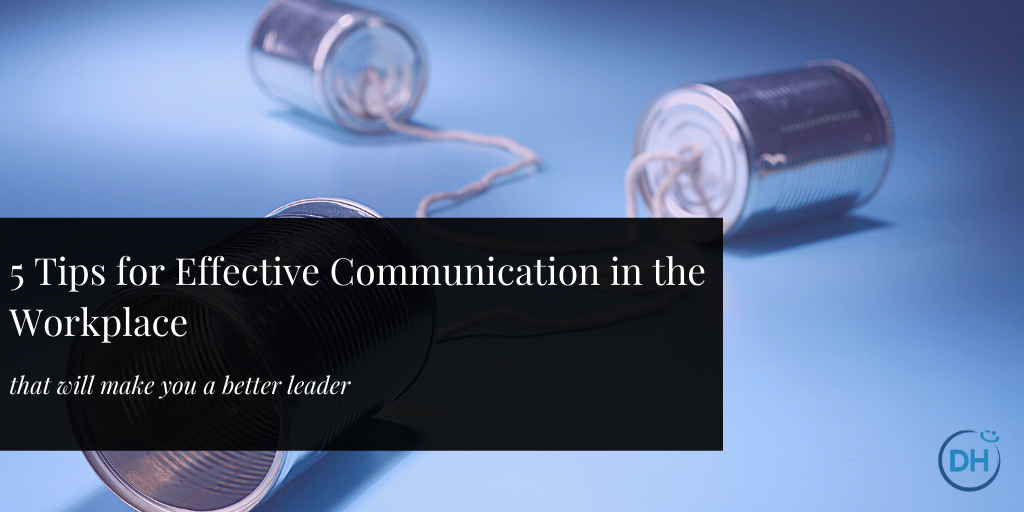
Communication is an essential part of everyday life. Clear, concise, honest, and open communication is fundamental to achieve successful working relationships. Here are five tips that will ensure you and your team are communicating effectively.
In many situations, we tend to sugarcoat the truth. When the new guy can't make coffee, [which is in his job description], you find yourself re-evaluating your hiring decision. Instead of addressing the problem or reviewing the number of expresso scoops that need to be added, you tell him the coffee is fine, as you pour in more sugar. A week later, you fire him, leaving him confused and hurt.
Be honest, be transparent in all situation, especially when difficult conversation have to be had. In the long run, this will create trust and understanding. If you continue to pour sugar on a problem it will eventually begin to decay, leaving you with a painful [and possibly expensive] cavity that will eventually need to be filled.
Placing blame is the assignment of wrongdoing, by you, on to another. Before you blame, ask yourself, “What do I want more?” To assign blame, or find a solution to the problem? Ultimately, you want results, you want solutions. To achieve this you must skip the blame game. It only serves to offend and incite arguments. It is counter-productive to your goals and objectives.
The same goes for judgment. The other person is not wrong or bad for what they said or did. From their perspective, they are right and good. Arguing this point does not produce the results you want. Skip the judgment and move straight to getting what you want.
Instead of placing blame and judgement, work together to find solutions and resolutions. This will create an atmosphere that encourages team work, creativity, which can lead to new services, new products or a more efficient way of doing things.
As you open your mouth, ready to speak, ask yourself, “Whose perspective am I coming from?” The truth is, you can only come from your own perspective. I realize you want to start your communication with “YOU….,” but that is not possible. It is impossible to know someone else’s perspective. You can only speak about how things appear to you. Therefore, let your words reflect this fact by starting with an “I” statement.
For example:
Using “I” statements prevents the risk of offending anyone and avoids placing unnecessary blame or judgement. By approaching conversations from "I" instead of "you" allows the other person to hear you, gives them the opportunity to listen and reflect on what is being said instead of feeling attacked and shutting down.
We have all started a conversation with a version of “I could be wrong, but ….” or “Correct me if I’m wrong, but …”?
There is a nifty psychological trick in these phrases. You start from a place of weakness, “I could be wrong.” Starting from weakness causes the other person to let down their guard. You are approaching them as a friend, not as an adversary. In addition, a position of weakness invokes sympathy. No one wants to kick you when you are down. By admitting, right off, that you could be wrong, you are showing a soft underbelly. Others will want to agree and support you. Then you surprise them with the magical word, but. The word but negates the phrase that came before it.
When discussing a co-worker’s results, you do not want to say, “Good work, but…” Doing so sends the message you do not think their results are good. In these situations, using and instead of but allows you to transition to the second point without canceling the first.
In our “I could be wrong” scenario, the word but just eliminated the possibility of being wrong. “Correct me if I’m wrong, but,” says, “there’s no way I’m wrong” and, at the same time, feels to the listener that you are still their friend.
After the but, you are free to say almost anything. Of course, you will be saying it with “I” statements.
Assuming you are using the above tips, then it will be rare that you might offend someone. Even with these tips, it is still possible. In those situations, be quick to apologize. It is the most effective tool you have for creating peace.
Peace, mutual respect, and happiness are essential components of a good working relationship.

Paul Levin is an author, speaker, and emotional breakthrough mentor. He is a Certified Hypnotist, and Certified NLP Practitioner specializing in Belief Systems. Paul helps bring happiness and empowerment to business. He also teaches individuals how to manifest the life they want. Paul is the author of the book: “Your Life Sucks No More, The Ultimate Guide to Manifesting Your Perfect Life” To learn more about Paul Levin and I Deserve A Perfect Life visit No More Fear Now, I Deserve a Perfect Life, LinkedIn, Facebook